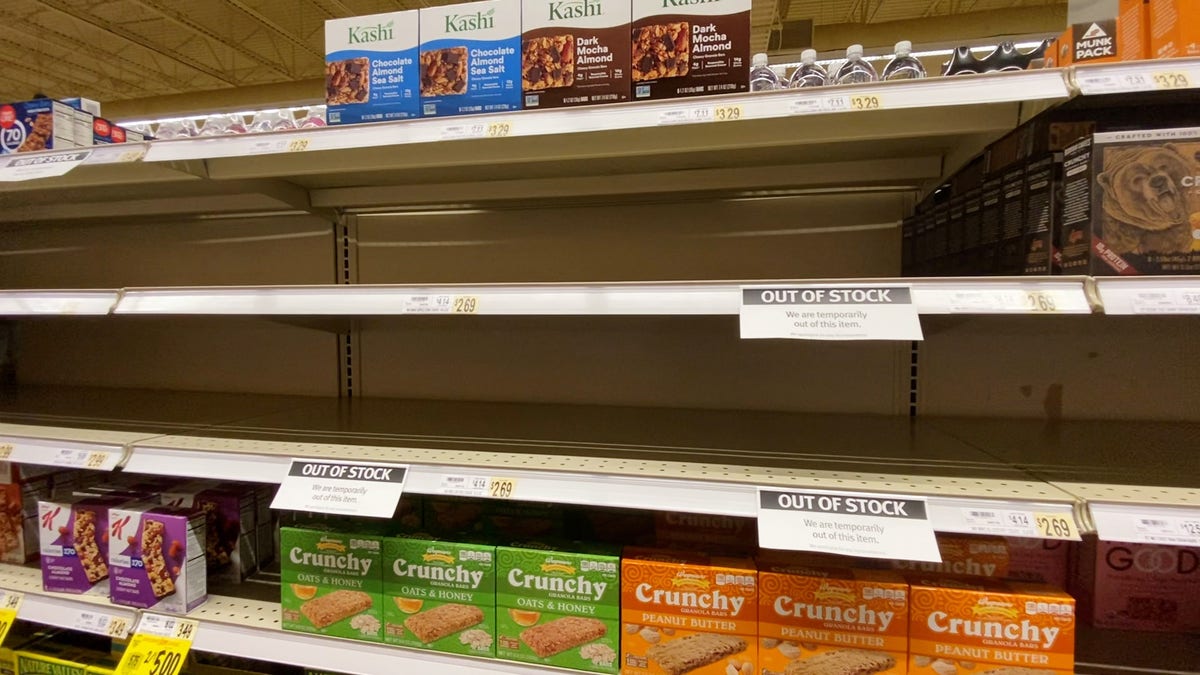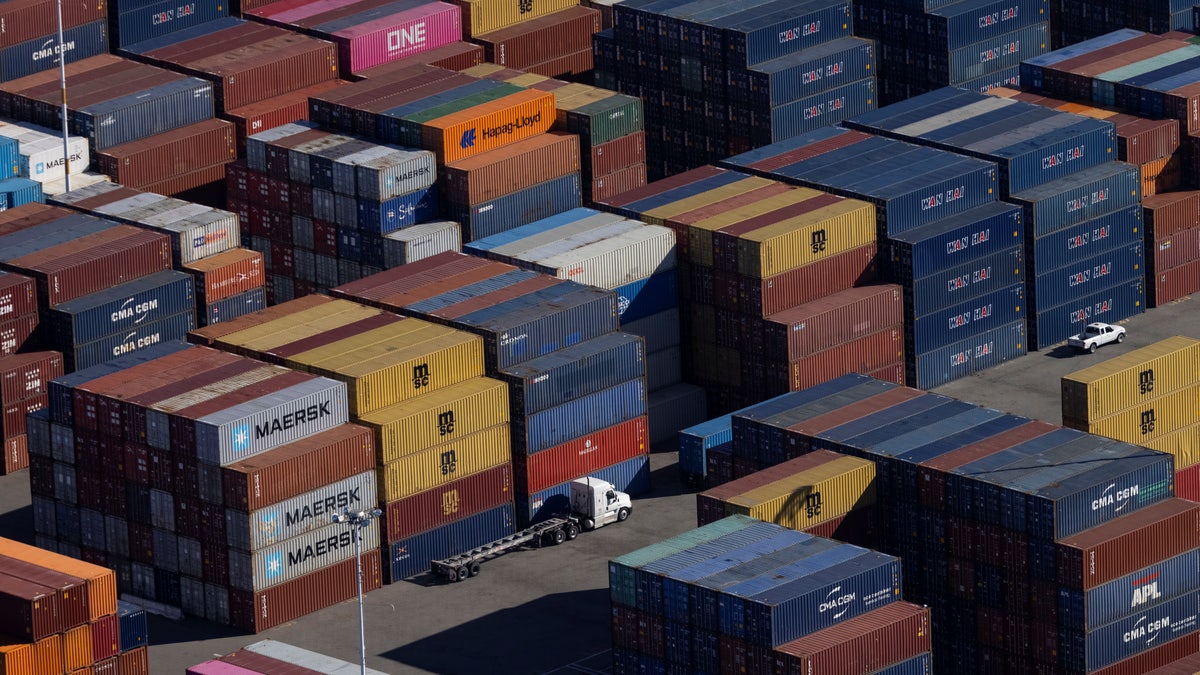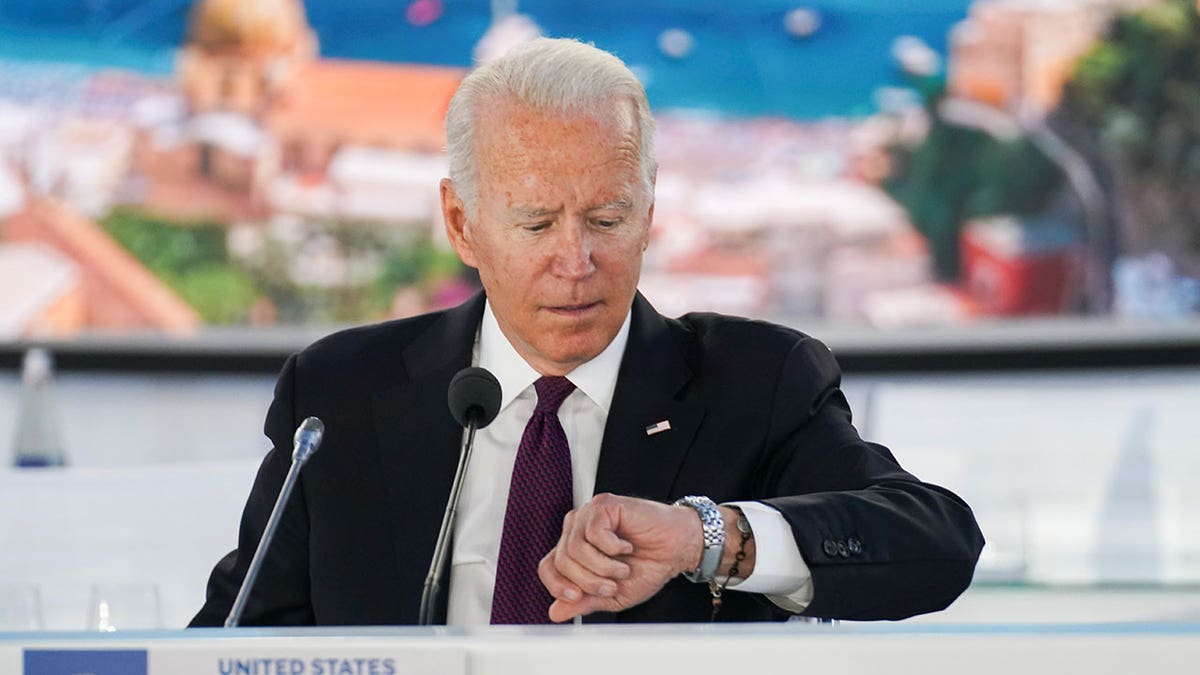Media top headlines November 9
In media news today, a Washington Post media critic says the Durham indictment is 'bad news' for those who hyped the Steele dossier, Howard Stern calls for Aaron Rodgers to be kicked out of the NFL, and Bari Weiss is among the advisors of a new university that rejects 'illiberalism'
TIME Magazine irked readers Tuesday after the outlet appeared to blame American consumers for the country's current supply chain crisis that has resulted in depleted store shelves.
"How American shoppers broke the supply chain," TIME tweeted with a link to its report.
The outlet in part blamed the coronavirus pandemic for the backlog, but added the supply chain is also broken "because of the sheer volume of stuff that Americans are buying, especially online."

Shoppers in a Washington, D.C., suburb reacted to surging grocery prices amid supply-chain bottlenecks and rising inflation. (Fox news)
TIME made its target even clearer in a section titled, "Our buying habits are hurting the US economy."
"Usually consumer spending is good for the economy, but the bottlenecks created by America’s huge appetite are becoming a problem for economic growth," the magazine wrote.
The piece also quoted someone who described Americans as "singularly impatient consumers."
"Americans have become singularly impatient consumers, unlike their peers in much of the rest of the world," said Jock O’Connell, international trade advisor at Beacon Economics, in the TIME article. "We have much more inventory in this country than we would need if Jeff Bezos hadn’t convinced us we could have our stuff delivered tomorrow."
Twitter users rejected the lecture and refused to accept responsibility for the increasingly empty shelves. Some sarcastically called TIME's report "top notch" messaging and accused the media at large of changing the narrative on the growing economic crisis.
SUPPLY CHAIN EXPERTS WEIGH IN ON CAUSES, SOLUTIONS FOR BACKLOG

Shipping containers are seen at the container terminal of the port of Oakland, California, U.S., October 28, 2021. REUTERS/Carlos Barria (REUTERS/Carlos Barria)
TIME's take followed a similar report from The Atlantic that appeared to blame U.S. shoppers for the ongoing supply chain shortages.
"Supply-chain problems could be solved more quickly if affluent Americans would stop buying up things they don’t need and often don’t even really want," the liberal magazine wrote last month.
CLICK HERE TO GET THE FOX NEWS APP
The Biden administration has also seemed to spend some time lecturing Americans. In a press conference last weekend, President Biden was accused of insulting Americans' intelligence while answering questions about the crisis.
"If we were all going out and having lunch together and I said, 'Let’s ask whoever's in the next table, no matter what restaurant we’re in, have them explain the supply chain to us.' Do you think they’d understand what we’re talking about?" Biden asked.

U.S. President Joe Biden checks his watch during an event on global supply chain resilience through the coronavirus disease (COVID-19) pandemic and recovery, on the sidelines of the G20 leaders' summit in Rome, Italy October 31, 2021. (REUTERS/Kevin Lamarque)
"They're smart people," he said of Americans while noting the supply chain was part of a "complicated world."
Republicans have placed the blame back on Biden's shoulders. In an internal memo to Republican Study Committee members obtained by Fox News last month, Rep. Jim Banks, R-Ind., blamed continued funding for unemployment in Biden's $1.9 trillion COVID relief package, the closing of the Keystone Pipeline XL and suspending drilling licenses, and the rapid rate of inflation as the biggest factors that led to the current shortages.









































